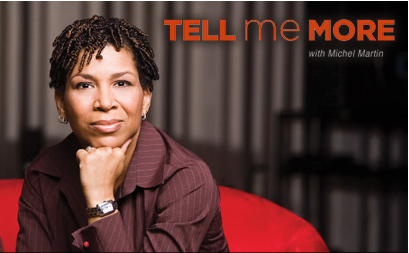Please check out the segment, “Not Having Kids Bad for the Economy?” on the NPR show Tell Me More I was part of this week. Host Michel Martin had read the recent piece by Harry Siegel and Joel Kotkin on thedailybeast, “Where Have All the Babies Gone,” and was interested in talking more about it as well as the childfree choice, which the piece focused on as a less than positive effect on current demographic trends. Here’s a few post show thoughts:
While the title clearly seemed to point toward a discussion about why we need to be concerned about birth rate declines, and Siegel did give a few comments about the woes of current demographics trending toward more elderly, the Q&A ended up being focused on the childfree choice. As much as I would have loved to do more counter to Siegel’s and others who hold his similar views, I am ready to talk about the childfree choice any time. The more education, exposure and information out there the better.
Siegel referred to the having no children as the “selfish choice” – as in, when it comes to having kids, if you have less than replacement rate you are selfish for not continuing to grow our population for the sake of the demographics required to keep a strong economy. We did not get into how this can be looked at in just the opposite way – that it can be considered selfish to have more babies contributes to what is already a population that is not sustainable.
He also lamented a bit about the future of not having enough younger people to care for the elderly – what I call the pronatalist Elderhood Assumption. We could have gotten into how this worry is based on outmoded mindsets, and how it is time to look at the benefits of current demographic trends, and how to sustain economic success given those trends – like people’s decisions to have fewer (or no) children.
We focused on the “no kids” decision in this segment. I remarked how I thought it curious that Siegel and Kotkin focused on those with no children, as in the last decade or so, it has hovered at accounting for about one and five women (ages 40-44). The reality is four out of five women are having children. And while the birthrate has dipped to 1.9, it is predicted to go back to replacement levels as the economy continues to strengthen. So Siegel, Kotkin, Jonathan Last and others who are worried — as Last has said “replacement is golden” and you will likely see that rate again…
 My heart went out to the childfree woman on the panel who said that being on the show was the first time she had ever really talked about her choice openly. She felt anger about this. I added some common reactions I have heard from many childfree over the years – that no matter how clear they are in talking with others about their childfree choice, they feel misunderstood and wrongly perceived and judged. And this is frustrating!
My heart went out to the childfree woman on the panel who said that being on the show was the first time she had ever really talked about her choice openly. She felt anger about this. I added some common reactions I have heard from many childfree over the years – that no matter how clear they are in talking with others about their childfree choice, they feel misunderstood and wrongly perceived and judged. And this is frustrating!
While she had not talked to others about her childfree choice, I commented that while this is true for lots of folks, there is so much more talk about it these days. In fact, in the last decade, there has been a revolution of exposure and information on this topic.
And I talked about how acceptance levels of this choice have risen as well. In December of 2012, I conducted an informal poll on acceptance levels of the childfree choice, and with responses still coming in (now at over 600), the majority say it is “More accepted today than 10 years ago but we still have a ways to go.”
I am happy to been able to add to the conversation on this show…what thoughts were you left with?


Let me get this straight. If I had kids, even though I can’t afford them, I’m a “welfare queen” and parasite, because I will need government resources in order to handle the financial strain. By not having kids, I’m being “selfish” because I have not squirted out a human being to take care of me when I’m old. Pardon me, but it seems like another salvo in the war on women. I am not “selfish” in either choice just because I don’t OBEY a man’s vision of what is right. Had the authors of the article in The Daily Beast said the same thing about African American couples, they would be accused of the worst kind of racism. Because they generalize it to all the childless, does not mean this is not aimed at women and completely sexist.
I would have had to counter that brain dead male about some glaring holes in his numbers comprehension problem. I’m not a fan of NPR, and this kind of thoughtless hack show is why.
1. What about the horrible people who never should have had children raising murderers, rapists and thieves? Why are those careless reproducers getting a pass?
2. Did he ever stop to think that most kids won’t take care of their parents and having a baby just for that reason is actually SELFISH not to mention sick?
3. What about people who would otherwise pass on bad genetic material who specifically and SELFLESSLY decided not to have a kid because of what they or other family members went through?
4. As technology advances and replaces workers, what will he do to combat massive layoffs?
5. Considering the fact that 9 MILLION children die a year I want to know how he’ll keep every precious addition to the world “economy” alive…
6. If he’s going to make the false assumption that the childfree are selfish then what does that make a bad parent? How do we publicly shame them for having a child that is a burden on society?
7. If he’s going to advocate brainless reproduction just for replacement numbers’ sake then what is his take on teen pregnancy?
8. So we’re supposed to have children just because we can and not wonder if we should because this is somehow “wrong” to an old man economically speaking?
9. What do those who have too many children do now? Am I as someone who has no children going to be forced to feed kids those parents can’t care for through higher taxes?
10. What about irresponsible religions forcing women to be brood mares for their cults with no forethought about the woman’s health? Children are just seen as slave to an invisible master and women as slaves to their husbands.
Yep, I went there….